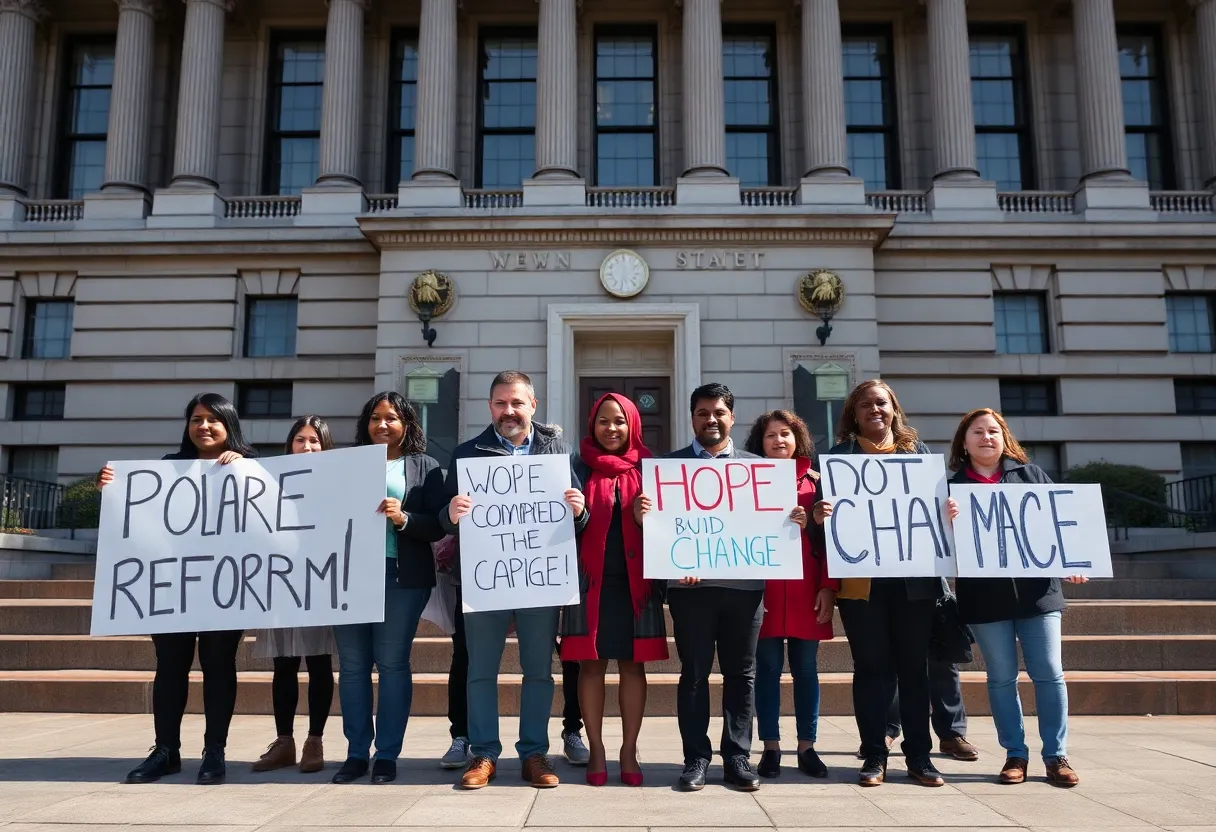News Summary
Nineteen aging services providers and health organizations have urged New York lawmakers to pass the Elder Parole bill and the Fair and Timely Parole Act to improve parole for older inmates. These measures aim to address the urgent need for a more equitable parole system and highlight issues such as racial disparity in parole grants. Supporters argue that reforms are necessary to provide humane treatment for older individuals in prisons, particularly those who have demonstrated rehabilitation.
New York City – Nineteen aging services providers and health organizations have called on New York state lawmakers to pass key parole reform measures aimed at older individuals incarcerated in state prisons. The letter sent on Monday highlights the urgency of enacting the Elder Parole bill and the Fair and Timely Parole Act, both of which are designed to address significant issues within the parole system.
The Elder Parole bill would allow individuals aged 55 and older who have served long sentences to be considered for parole on a case-by-case basis. Advocates emphasize that older incarcerated individuals are at a greater risk of premature death, with an average life expectancy of just 58 years for those in the system. This legislation, if passed, could provide a path to freedom for vulnerable older inmates who have demonstrated rehabilitation over the years.
Alongside the Elder Parole bill, supporters are also advocating for the Fair and Timely Parole Act. This act seeks to prevent the parole board from denying parole requests based on political considerations or the severity of the original offense, thereby aiming to create a more equitable process for parole hearings.
According to recent reports, New York’s parole board has exhibited a troubling trend of racial disparity, being 33% more likely to grant parole to white individuals compared to Black individuals. This disparity has drawn criticism from advocacy groups, who are pushing for reform and restructuring of the parole board to eliminate bias and to increase diversity in its membership.
As discussions surrounding these parole reforms unfold, state senators are actively rallying support for the Elder Parole legislation, which has recently gained majority sponsorship in the state Senate. The proposal not only aims to address the needs of older incarcerated individuals but also reflects growing concerns over the conditions faced in state prisons.
The dialogue about parole reform coincides with other significant developments in New York City. On the same day that the letter was dispatched to lawmakers, the city government announced the selection of health insurers EmblemHealth and United Healthcare to develop a new health insurance plan for most municipal employees. This new plan aims to lower costs and replace the previous joint coverage provided by Anthem and EmblemHealth. Negotiations between the city, insurers, and the Municipal Labor Committee will determine the details of the new arrangement, which has the potential to save taxpayers up to $1 billion.
In another political move, Governor Kathy Hochul announced two appointments to the board of Nassau University Medical Center. This restructuring, part of this year’s budget, saw Dr. Lisa Zakiya Newland and Rory Lancman appointed to the board, following the selection of Stuart Rabinowitz as the new leader of the hospital amid ongoing financial challenges.
While many lawmakers support the Elder Parole and Fair and Timely Parole acts, some remain concerned about potential public safety risks associated with releasing individuals who may be viewed as dangerous. The debate illustrates the complexity of balancing rehabilitation opportunities with community safety.
Advocates point out that New York’s current sentencing laws have contributed to mass incarceration, disproportionately affecting Black and brown communities. As higher-risk individuals age behind bars, the calls for reform grow louder, with the aim of creating a more just parole system that reflects the values of equity and rehabilitation.
The push for change encapsulates the ongoing dialogue about social justice, accountability, and the humane treatment of older individuals within the penal system.
Deeper Dive: News & Info About This Topic
HERE Resources
Additional Resources
- Crain’s New York: Health Pulse
- Wikipedia: Parole
- New York Daily News: Focus on Parole Reform
- Encyclopedia Britannica: Criminal Justice
- Times Union: Changes in New York’s Prison System
- Google Search: Parole Reform New York

Author: STAFF HERE NEW YORK WRITER
The NEW YORK STAFF WRITER represents the experienced team at HERENewYork.com, your go-to source for actionable local news and information in New York, the five boroughs, and beyond. Specializing in "news you can use," we cover essential topics like product reviews for personal and business needs, local business directories, politics, real estate trends, neighborhood insights, and state news affecting the area—with deep expertise drawn from years of dedicated reporting and strong community input, including local press releases and business updates. We deliver top reporting on high-value events such as New York Fashion Week, Macy's Thanksgiving Day Parade, and Tribeca Film Festival. Our coverage extends to key organizations like the Greater New York Chamber of Commerce and United Way of New York, plus leading businesses in finance and media that power the local economy such as JPMorgan Chase, Goldman Sachs, and Bloomberg. As part of the broader HERE network, including HEREBuffalo.com, we provide comprehensive, credible insights into New York's dynamic landscape.





